István Anhalt,
DR. ISTVAN ANHALT was born in 1919 in Budapest, Hungary. His academic training was carried out at the Royal Hungarian Academy of Music and the Conservatoire National de Musique de Paris. His composition teachers were Zoltán Kodály and Nadia Boulanger; he received instruction in conducting from Louis Fourestier and in piano from Soulima Stravinsky. In 1949, Anhalt came to Canada on a fellowship awarded by the Lady Davis Foundation, and at the same time was appointed to the Faculty of Music at McGill University. After several years of off-season experimentation and compositional work at several electronic music laboratories in Canada and the United States, Anhalt, in 1964, installed an electronic music studio at McGill and was appointed director. He was named to the Slee professorship at New York State University in 1969. From 1971 to 1981 he was head of the music department at Queen’s University and the next year, the degree Doctor of Music, honoris causa, was bestowed upon him by McGill. Upon his retirement in 1984, Queen’s awarded him the title of professor emeritus.
Anhalt’s creative career thus far falls into four distinct periods. The first period, ending in 1958, established his artistic identity through a number of works for voice, chorus, instrumental soloists and ensembles. The following short period, from 1959-61, was devoted exclusively to electronic music. The third, which began in 1962, is a consolidation, reworking and expansion of all his earlier experiences. Anhalt came to use a wider musical vocabulary and a more flexible syntax than before and to conceive instrumental and vocal sounds with a new insight obtained through his work with synthetic sounds.
Since 1971 he has composed three dramatic works and a trio of purely orchestral pieces. His book-length study entitled Alternative Voices: Essays on Contemporary Vocal and Choral Composition was published in 1984 by the University of Toronto Press.
The outline of Istvan Anhalt’s career as a professional musician can be described in a few words. He is neither a facile nor a prolific composer. Each of his 25 works reveals a discriminating creative personality whose artistic ideals are of the highest order, and who takes infinite pains to achieve them.
Udo Kasemets/Louis Applebaum
PROCAN, Canadian League of Composers
Showing all 7 results
-
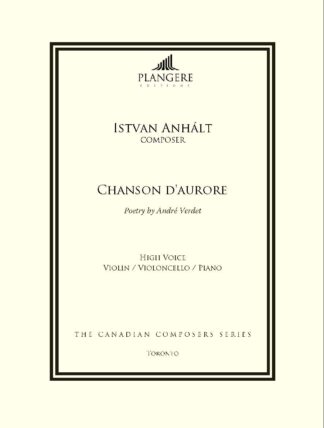
Chanson d’aurore (4 songs-High Voice)
$39.99 Add to cart -
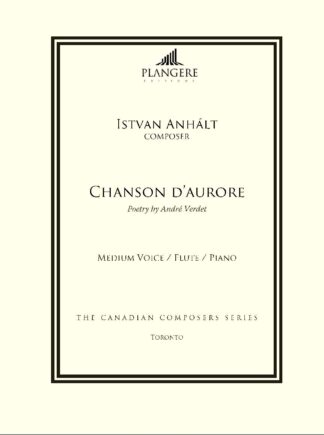
Chanson d’aurore (4 songs-Medium Voice)
$39.99 Add to cart -
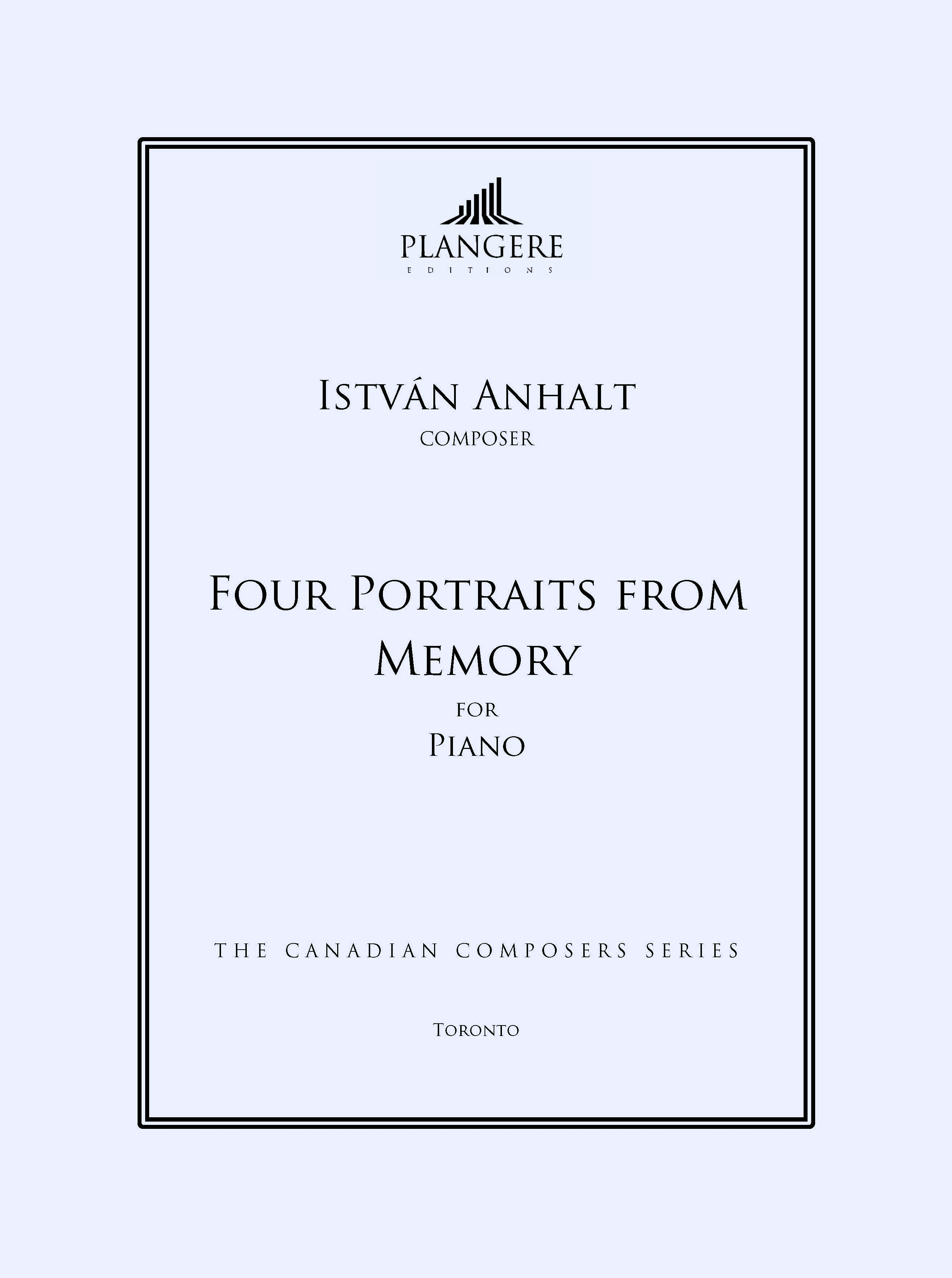
Four Portraits from Memory
$23.99 Add to cart -
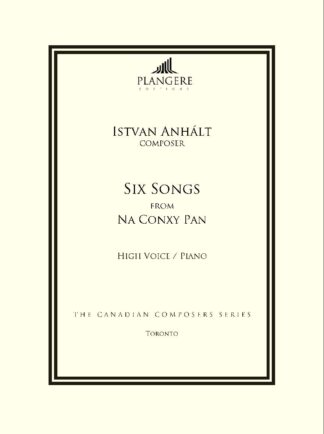
Six Songs from Na Conxy Pan (High Voice)
$27.99 Add to cart -
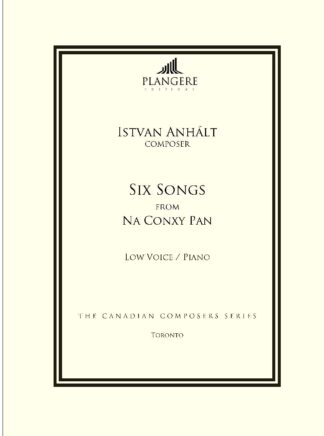
Six Songs from Na Conxy Pan (Low Voice)
$27.99 Add to cart -
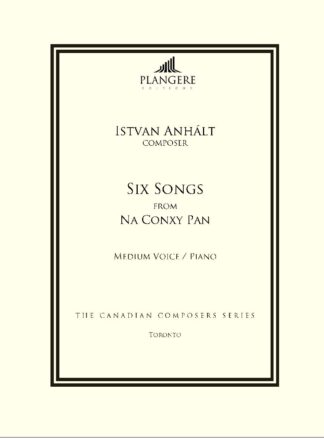
Six Songs from Na Conxy Pan (Medium Voice)
$27.99 Add to cart -
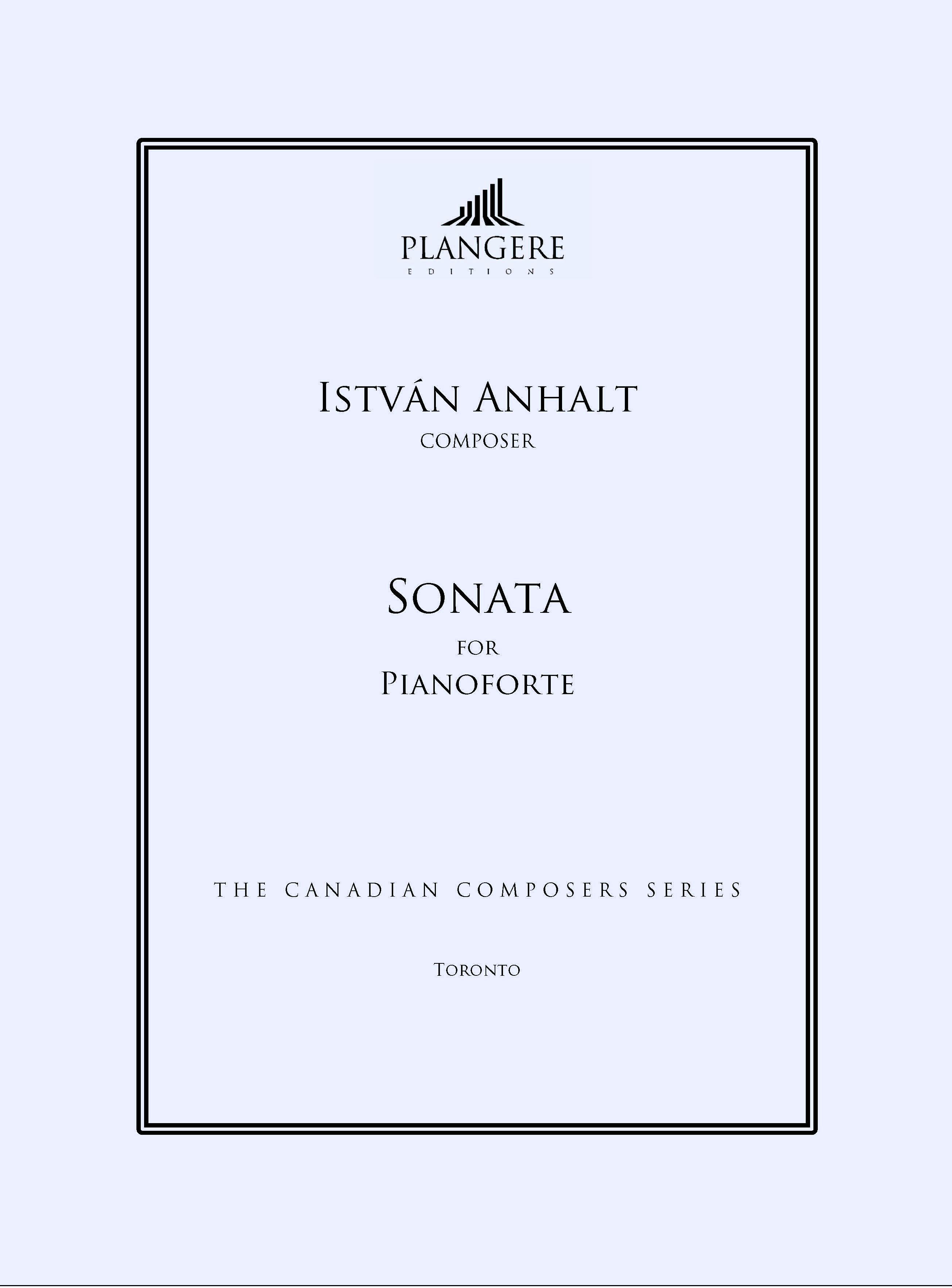
Sonata for Pianoforte
$23.99 Add to cart
Showing all 7 results
